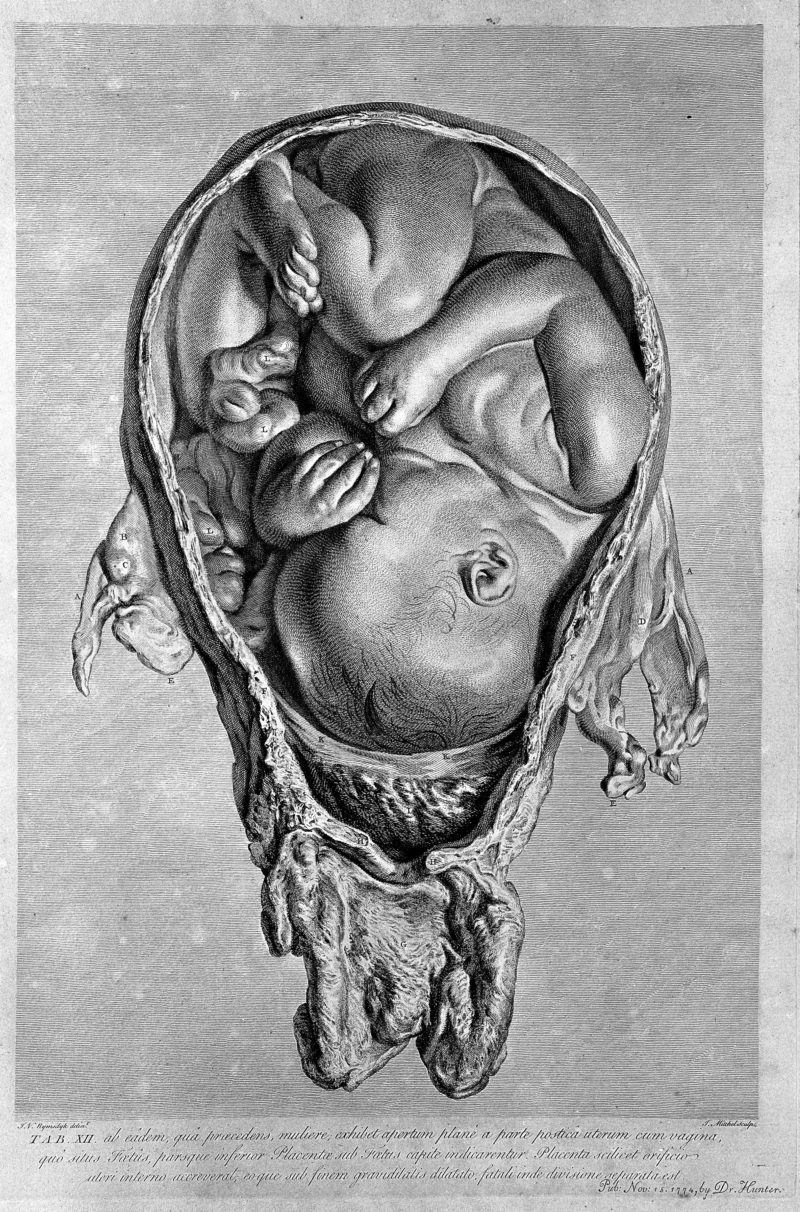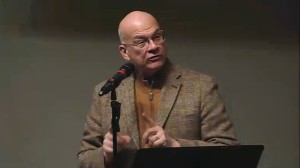What’s driving today’s polarization around race? And what’s the answer?
Two opposite answers—two narratives, if you will—are unfolding. One emphasizes systemic injustice and institutional racism. It views the problems black people face as sourced outside their community and attributes these problems to historic slavery and pervasive, systemic white oppression.
The other narrative emphasizes the importance of personal responsibility; evil is rooted in human hearts. Yes, white racism persists, but much bigger challenges confront the black community, challenges that can be overcome by the actions and decisions of black people in ways that are not ultimately dependent on the actions of white people.
Here’s the latest in our current series, A Dialogue on Racism and Christian Racial Reconciliation
~
[This is part 2 of Scott’s response. Go here to read part 1.]
Human nature and identity
James Lindsay contrasts the biblical view of human identity with that of critical theory. According to the biblical view, people “are children of God, fashioned in His divine image. [According to] Social Justice, we are children of society, fashioned by its social constructions and the power dynamics they maintain.”
 Postmodern critical theory views human beings as creatures whose identity is entirely socially constructed, and defined by group affiliations, particularly those based on race, sex, and sexual identity. There is no shared human nature. As Nancy Pearcey explains: “Everyone’s ideas are merely social constructions stitched together by cultural forces. Individuals are little more than mouthpieces for communities based on race, class, gender, ethnicity, and sexual identity.” She goes on to say that critical theory reduces “individuals to puppets of social forces . . . powerless to rise above the communities to which they belong.”
Postmodern critical theory views human beings as creatures whose identity is entirely socially constructed, and defined by group affiliations, particularly those based on race, sex, and sexual identity. There is no shared human nature. As Nancy Pearcey explains: “Everyone’s ideas are merely social constructions stitched together by cultural forces. Individuals are little more than mouthpieces for communities based on race, class, gender, ethnicity, and sexual identity.” She goes on to say that critical theory reduces “individuals to puppets of social forces . . . powerless to rise above the communities to which they belong.”
What is the casualty of this reductionist view? The individual, along with personal agency, and responsibility.
Here’s Keller on this topic:
- “[Postmodern critical theory] undermines our common humanity. Biblically, we are primarily individuals before God, made in his image, and secondarily members of a race/nationality. The postmodern view, however, makes one’s racial or group identity primary.”
- “[According to postmodern critical theory] individual rights nor individual identity are primary … [It] is an illusion to think that, as an individual, you can carve out an identity in any way different or independent of others in your race, ethnicity, gender, and so on. Group identity and rights are the only real ones.”
- “[Postmodern critical theory] sees human beings as inherently good or blank slates. Any evil is instilled in us by society, by social systems and forces. So any pathology (poverty, crime, violence, abuse) is due to one thing only—wrong social policy.”
Morality
Critical social theory has a defined moral system. Evil and moral guilt are associated with power, which is always oppressive, while moral innocence, and moral authority are associated with oppressed victims. At present, those with power are said to be heteronormative males with white skin. They have established and maintain hegemonic power structures to oppress and subjugate women, people of color, sexual minorities (LGBTQ+) and others. These interlocking webs of systemic oppression have many labels: white supremacy, toxic masculinity, homophobia, misogyny, the male-female binary, and the patriarchy are just a few.
What is the solution to evil/oppression? In revolutionary fashion, oppressed victims and their allies must unite to unmask, deconstruct, and overthrow these oppressive power structures, norms, systems, and institutions. We see this revolutionary fervor in our headlines every day, with courthouses on fire, violence and looting, and statues being toppled.
Keller calls the moral system established by postmodern critical theory “deeply incoherent.” Critical theorists operate within an atheistic framework, yet claim a basis for knowledge of good and evil. Keller writes: “You cannot insist that all morality is culturally constructed and relative and then claim that your moral claims are not. … this may therefore be a fatal flaw for the entire theory.”
More Keller on this topic:
- “Guilt is not assigned on the basis of individual actions but on the basis of group membership and social/racial status.”
- “[I]n this postmodern view of justice groups are assigned higher or lower moral value depending on their power, and some groups are denied any redeeming characteristics at all.”
- “If you are white, male, straight, cisgender then you have the highest amount of power. If you are none of these at all, you are the most marginalized and oppressed… Most importantly, each category toward the powerless end of the spectrum has a greater moral authority… Only powerlessness and oppression brings moral high ground…”
Ideologies that draw the good vs. evil line between different groups are not just wrong, they are dangerous. If this group is good, and that group is evil, it is very easy to dehumanize the “evil” group. This is what happened in Nazi Germany with the Jews and in communist nations with “capitalists.” It happened in Rwanda in 1994, when the Hutu-led government, fueled by an ideology of hate, launched a genocide that left as many as a million Tutsis dead in just one hundred days.
Followers of Jesus Christ must never be complicit in an ideology that encourages the dehumanization of our neighbors, particularly when the dehumanization is based on an immutable characteristic such as skin color.
 Keller warns, “To see whole races as more sinful and evil than other races leads to things like the Holocaust.”
Keller warns, “To see whole races as more sinful and evil than other races leads to things like the Holocaust.”
Now, contrast this to biblical morality. In the immortal words of Aleksandr Solzhenitsyn, “The line separating good and evil passes not through states, nor between classes, nor between political parties either [and we can add, nor between groups based on skin-color]—but right through every human heart.” “All have sinned, and fallen short of the glory of God” (Rom. 3:23). Our rebellion against God has resulted in broken relationships—between God and man, between man and his fellow man, and between man and creation.
What is the solution? The cross of Christ. On the cross, God incarnate bore the punishment we deserved for sinful rebellion in order to show us mercy we could never deserve. His death on the cross and His resurrection opened the way for the reconciliation of all of our broken relationships.
Postmodern critical theory sources evil not in human hearts, but in social structures. The biblical worldview, by contrast, views evil not as structural, but as personal. Injustice exists because we are all fallen, sinful, selfish people. The only solution is a personal, heart-level transformation, not just for a particular group of so-called “oppressors,” but for everyone. There is no hope for lasting social change apart from the gospel and new life in Christ.
Unlike postmodern critical theory, the biblical view of transformation encompasses both the inward and the outward, the personal and the societal, the regeneration of fallen human hearts and minds and the reformation of society. As Dallas Willard wisely said:
 The revolution of Jesus is a revolution of the human heart or spirit. It did not and does not proceed by means of the formation of social institutions and laws … Rather, it is a revolution of character, which proceeds by changing people from the inside through ongoing personal relationship to God in Christ and to one another. It is one that changes their ideas, beliefs, feelings, and habits of choice, as well as their social relations. From these divinely renovated depths of the person, social structures will naturally be transformed so that “justice roll[s] down like waters and righteousness like an ever-flowing stream” (Amos 5:24).
The revolution of Jesus is a revolution of the human heart or spirit. It did not and does not proceed by means of the formation of social institutions and laws … Rather, it is a revolution of character, which proceeds by changing people from the inside through ongoing personal relationship to God in Christ and to one another. It is one that changes their ideas, beliefs, feelings, and habits of choice, as well as their social relations. From these divinely renovated depths of the person, social structures will naturally be transformed so that “justice roll[s] down like waters and righteousness like an ever-flowing stream” (Amos 5:24).
Yes, we all long to see our broken, hurting society healed. But the solutions provided by postmodern critical theory only make things worse by misdiagnosing the problem. It isn’t the patriarchy or white supremacy, and it certainly isn’t the male-female binary. Unjust and oppressive human systems, structures, institutions, laws, and norms are symptoms, not the disease. The disease is sin. It is alienation from God. The solution is inward heart and mind transformation through the gospel, leading to outward, societal transformation.
Keller again:
- “[Critical theory] denies our common sinfulness. The Bible teaches that sin is pervasive and universal. We are each members of a race or nationality that contains much unique common grace to contribute to the world. But every culture also comes with particular sinful idolatries. No race or people group is inherently more sinful than others.”
- [According to postmodern critical theory] “All unequal outcomes in wealth, well-being, and power is [sic] never due to individual actions or to differences in cultures or to differences in human abilities, but only and strictly due to unjust social structures and systems. The only way to fix unequal outcomes for the downtrodden is through social policy, never by asking anyone to change their behavior or culture.”
When you combine the critical theory views of ultimate reality, power, human identity, and morality you begin to see how it can only lead to a fractured, tribalistic world of identity groups competing for power. As Keller says, it “makes forgiveness, peace, and reconciliation between groups impossible.”
- Scott Allen
To be continued …






